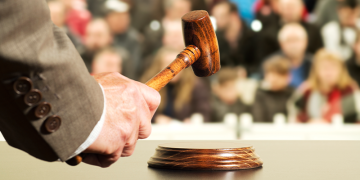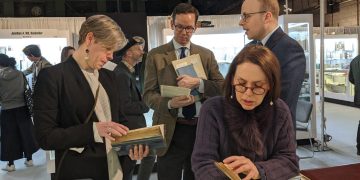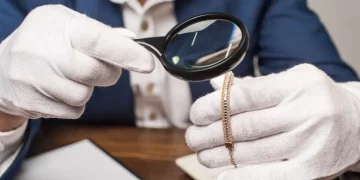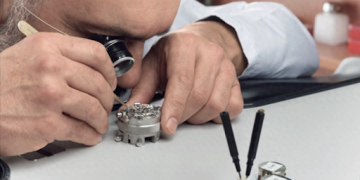The world of collecting is vast and varied, encompassing everything from rare artwork and vintage furniture to sports memorabilia and antique coins. For collectors, one of the most crucial aspects of acquiring valuable pieces is ensuring that the items are authentic and accurately appraised. The market for collectibles is rife with forgeries, misrepresentations, and inflated prices, which is why it’s essential to rely on credible and trustworthy appraisal institutions to verify the authenticity and value of the items you’re interested in.
In this comprehensive guide, we will explore how to choose a reliable appraisal institution and discuss the factors to consider when selecting a reputable service to assess your valuable collectibles.
1. Understanding the Role of Appraisal Institutions
An appraisal institution plays a critical role in the collectibles market. Their main function is to assess the authenticity, condition, and value of an item, helping collectors, investors, and even insurers to make informed decisions. They ensure that the item’s history, condition, and provenance (origin and ownership history) are thoroughly evaluated. These institutions are often the go-to source for accurate and impartial assessments.
A reliable appraisal institution will typically offer services like:
- Authentication: Confirming whether an item is genuine or a replica.
- Valuation: Determining the item’s market value based on factors such as condition, rarity, demand, and provenance.
- Condition Reports: Providing detailed reports on the item’s physical state, including any damage, repairs, or alterations.
- Provenance Verification: Tracing the history of ownership to ensure the item’s legitimacy and enhance its value.
2. Accreditation and Certification: Ensuring Reliability
When choosing an appraisal institution, the first thing you should look for is accreditation. Accreditation ensures that the institution adheres to professional standards and ethical guidelines set by governing bodies in the field of appraisals.
Reputable Accrediting Bodies
Some of the most respected accreditation organizations in the field of appraisal for collectibles include:
- The American Society of Appraisers (ASA): This is one of the leading organizations that provides accreditation for appraisers across various categories, including art, antiques, and jewelry.
- The Appraisers Association of America (AAA): This organization offers accreditation to appraisers specializing in fine and decorative art, antiques, and collectibles.
- International Society of Appraisers (ISA): This global body certifies appraisers with expertise in various types of collectibles, from art to historical objects.
- Certified Appraisers Guild of America (CAGA): Offers certification for appraisers with expertise in antiques, fine art, jewelry, and more.
These organizations require rigorous training, exams, and continuing education to maintain membership, ensuring that accredited appraisers are well-versed in the complexities of collectibles evaluation.
Why Accreditation Matters
Accreditation is important because it gives you confidence that the appraiser or institution has been vetted for professional expertise and ethical conduct. Accredited institutions are also bound by industry standards, providing you with assurance that the appraisal process is thorough and unbiased.
3. Specialization in the Type of Collectible
Not all appraisal institutions are created equal, and not all institutions are equally qualified to appraise every type of collectible. Just as an antique furniture specialist may not be able to appraise rare comic books accurately, an expert in fine art may not be as qualified to appraise vintage cars or sports memorabilia.
Look for Specialized Expertise
When choosing an appraisal institution, look for those with specific expertise in the type of collectible you’re dealing with. Institutions often have appraisers who specialize in certain categories, including:
- Fine Art: Paintings, sculptures, prints, and other forms of visual art.
- Jewelry and Watches: Specializing in high-end jewelry, gemstones, and vintage timepieces.
- Antique Furniture: Appraising valuable, rare, and antique furniture pieces.
- Historical Artifacts and Memorabilia: Specializing in items like coins, stamps, and sports memorabilia.
- Rare Books and Manuscripts: Institutions that focus on rare and antique books, manuscripts, and documents.
An institution’s specialization directly impacts the quality and accuracy of its appraisals. For instance, if you own rare comic books or vintage movie posters, an appraiser with experience in pop culture memorabilia will have a better understanding of market trends, pricing, and rarity than a generalist appraiser.
Ask for Examples of Past Appraisals
To ensure the institution has the right expertise, ask for examples of similar items they’ve appraised in the past. Institutions with a good reputation will be happy to share examples of their work and provide references from clients who have had similar items appraised.
4. Reputation and Experience: Trustworthiness Matters
When selecting an appraisal institution, reputation is crucial. Institutions with years of experience in the industry and positive client reviews are likely to offer accurate and trustworthy assessments. Researching their track record is essential to understanding whether they have the credibility you need.
Client Testimonials and Reviews
Reputable institutions often have testimonials or reviews from previous clients who can vouch for the institution’s integrity and expertise. Look for institutions with a long-standing reputation for providing reliable and professional services. Also, seek feedback from online communities or forums where collectors share experiences and recommend trusted appraisal services.
Industry Recognition
Check if the institution is frequently cited in reputable publications, or if they have partnerships with respected auction houses or galleries. Appraisers who are recognized and trusted by major auction houses like Sotheby’s, Christie’s, or Bonhams are generally considered highly reliable.
Professional Experience
While a new institution may offer good services, experienced appraisers have likely handled more cases and have deeper knowledge in their fields. A well-established institution with years of experience will have the necessary skills and knowledge to handle a variety of collectibles and ensure the appraisal process is thorough and accurate.
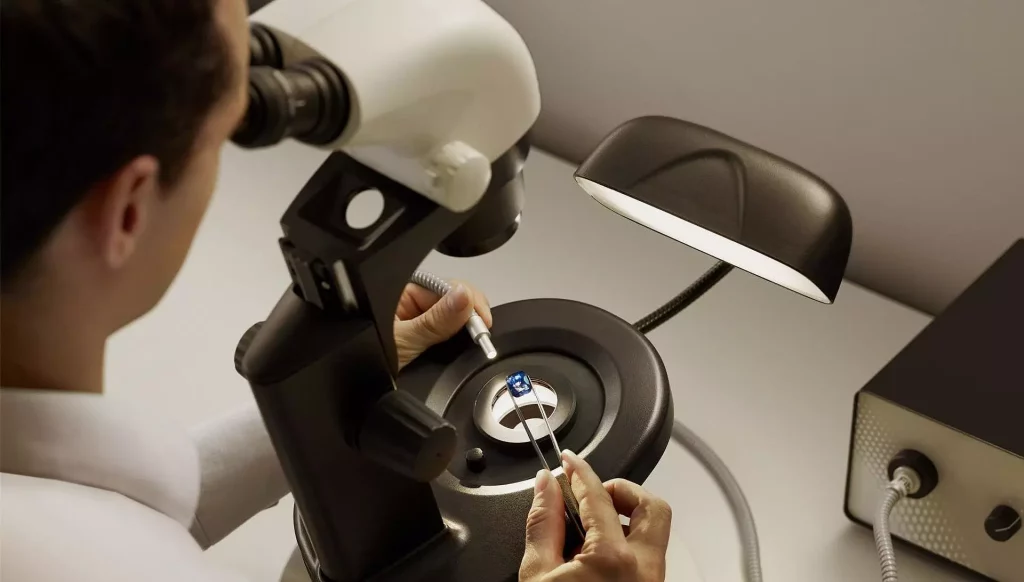
5. Transparent Pricing: Avoiding Hidden Fees
A trustworthy appraisal institution should have transparent pricing. Be cautious of institutions that don’t provide clear pricing structures or that charge exorbitant fees without offering a clear explanation of their services.
Ask for a Clear Fee Structure
Before committing to an appraisal service, always ask for a clear explanation of the fee structure. A credible institution should be upfront about their pricing, including whether they charge a flat fee or an hourly rate. Additionally, ensure you understand any potential additional costs, such as for in-depth research or specific certifications.
Get Multiple Estimates
If you’re unsure about the price being quoted for an appraisal, don’t hesitate to get estimates from multiple institutions. While the cost shouldn’t be the only factor in your decision, a substantial variance in pricing could indicate a problem. A reasonable fee for an appraisal service is one that reflects the amount of time, expertise, and research that goes into the evaluation of a collectible.
6. The Appraisal Process: What to Expect
Understanding the appraisal process is key to ensuring that the institution you choose is thorough and follows industry best practices. Typically, an appraisal process should involve several steps to ensure a comprehensive assessment of your collectible.
Initial Consultation
A good institution will first engage in a consultation to understand the details of the item, its provenance, and any information you have regarding its condition and history. During this phase, the appraiser may ask for any documentation or certificates that verify the item’s authenticity.
Physical Inspection
The next step involves a physical examination of the collectible. The appraiser will inspect the item’s condition, looking for signs of damage, repair, or alteration. They will also assess other factors such as the item’s age, craftsmanship, rarity, and historical significance.
Research and Valuation
After the physical examination, the appraiser will conduct extensive research to compare the item with similar pieces in the market. This research will involve checking auction results, market trends, and the item’s provenance to determine its value. The appraiser will also consider factors like rarity, condition, and demand when assigning a final valuation.
Documentation and Report
Once the appraisal is complete, the institution should provide a written report that includes:
- Detailed Description of the item, including its age, maker, and provenance.
- Condition Report that outlines any damages, repairs, or wear.
- Valuation based on current market trends and comparable sales.
- Certification of Authenticity (if applicable) that guarantees the item is genuine.
7. Conclusion: Making an Informed Decision
Selecting a trustworthy appraisal institution is essential for any collector, whether you are purchasing new items for your collection or are looking to authenticate and assess your existing items. Accreditation, specialization, reputation, and transparent pricing are just a few of the factors to consider when making your decision. By choosing a reliable institution with the expertise and experience to evaluate your collectibles, you can confidently navigate the world of collectibles, avoid overpaying, and ensure that your investments are both sound and secure.
Remember, an accurate appraisal not only helps you understand the true value of your collectibles but also provides peace of mind knowing that your items are properly authenticated and protected.






